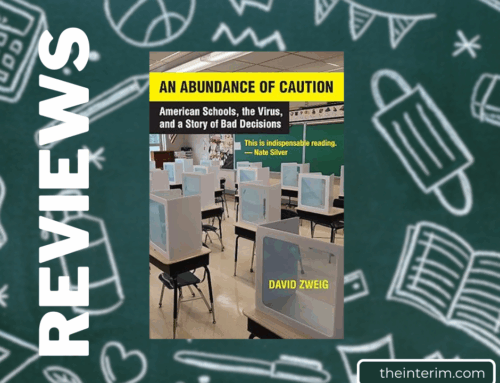An American psychiatrist who has spoken and written extensively on sex-ed says the Ontario Liberal government’s sex-ed curriculum is not based in science but “entrenched in ideology,” and endangers children by not clearly presenting the consequences of sexual activity.
“The priority is not your child’s health,” Miriam Grossman told a crowd of more than 800 in Mississauga August 18. “The priority is to mould your child’s thinking and attitudes so they respect, affirm and are comfortable with all sexual choices and lifestyles.”
And while the curriculum’s view “may or may not be consistent” with parents’ values, “it most certainly is not based upon current knowledge about child and adolescent development, sexually transmitted disease and many other areas,” she stated.
The New York-based child, adolescent and adult psychiatrist and author of You’re teaching my kids what? and Unprotected, told a standing-room-only crowd that it took three separate pleas from Ontario parents over the last six months to convince her to look into the Liberal government’s Grade 1 to 8 Health and Physical Education curriculum.
When she did so, Grossman was “amazed” – not by the curriculum, set to roll out in the province’s public funded schools this September – but by the groundswell of opposition to it. “I’ve never seen anything like this,” she said, adding that she’s seen many groups upset with sex-ed curricula across the United States, the United Kingdom, New Zealand and Australia. “So I absorbed all of this information for about 24 hours, especially the phenomenal grassroots campaign and I decided, I’m coming to Toronto.”
Grossman said she came to provide parents with “ammunition in your battle,” and her hour-long critique outlined the major flaws in a curriculum she described as “entrenched in ideology” and “centered on indoctrinating the child with its set of beliefs.”
“We have to teach children biological truths that could save their lives,” Grossman countered. “We can’t, for the sake of an idealized vision of what the world should be in someone’s mind, sacrifice the health and yes, sometimes the lives of young people.
“And yes, I have to say that is what going on in this curriculum.”
She criticized the curriculum for introducing biological details at inappropriate ages, noting that in her professional opinion, teaching the names of body parts in Grade 1 is “not necessary.” Six-year-olds are “very little and they’re innocent,” she said. “A child’s innocence and modesty comes naturally and should be protected.”
“What’s really going on in this curriculum is an attempt to de-sensitize children,” she said, pointing out that it “confuses sensitivity and modesty with shame and negative self-image.”
It is sufficient, in order to protect children against sexual predators, to teach them “that we all have private parts, those that are covered by a bathing suit,” and that “anyone who wants to see or touch you there, that’s a bad person” and “you scream and tell your parents.”
Grossman added that the American Academy of Child Psychiatry advises that in talking to their kids about sex, “parents should respond to the needs and curiosity level of their individual child, offering no more or less information than their child is asking for and is able to understand.” Perhaps, she suggested, a copy of this document “should be passed along to Premier Kathleen Wynne.”
She noted that, in marked contrast to how it approaches matters like diet, alcohol and tobacco use, where “the language is straightforward” and “the tone is firm and authoritative, we adults know more than you and we are warning you about the consequences,” the curriculum presents sexual activity as something a child decides on.
Grade 6 students contemplating sexual relationships are advised to consider “my comfort level … my personal limits, and the limits and comfort of others.”
“As if a sixth grader can possibly know that?” Grossman said, adding that adults struggle with such concepts. “This is not developmentally appropriate.”
And the Grade 7 document states that “having sex can be an enjoyable experience, it can be an important part of a close relationship when you are older.” Grossman pointed out the phrase “when you are older” which is used “everywhere where it talks about sexual relationships,” could mean Grade 8 or Grade 10. “The message here is that the child will decide when they are ready, instead of being told: You are not ready.”
This approach ignores neuroscience, which reveals that the part of the adolescent brain used for decision making, problem solving and understanding future consequences – the dorsal lateral pre-frontal cortex – is underdeveloped, and “won’t be fully mature until they’re in their 20s.” Teens are not capable of thinking through consequences of their actions because, as one insurance company put it in an advertisement, “a part of their brain is missing.”
And this approach to the “human development and sexual health” component is also based on the “Marxist” view of an “ideal world” where “no one group should suffer more than another as a result of their choices.”
“There is a significant flaw with this approach,” Grossman said. “It’s not based in reality. It’s a dream.”
And it’s one with serious consequences. In her 12 years practice at a clinic based in University of California in Los Angeles, one of the largest campuses in the United States, Grossman treated “thousands and thousands” of young people, mostly women, whose “suffering was 100 per cent avoidable.” They had had abortions, were afflicted with sexually transmitted infections, lived in fear of contracting HIV or getting cervical cancer and wanted to know why they hadn’t been told this would happen.
That started Grossman on her research, books and current campaign against what she sees as a politically correct medical profession, and a sex-ed industry motivated by an ideology that “people are sexual from cradle to grave and they should act on their sexual urges at any time.”
Grossman pointed out that if the Liberal curriculum used the same approach with sex education as it did with diet or smoking, it would clearly warn students that even having sex once could result in a sexually transmitted infection that is lifelong in duration, or in a pregnancy, or in an HIV infection “which sooner or later becomes AIDS, and AIDS will kill you.”
Girls are at greater risk in becoming sexually active because they have an immature cervix that is particularly vulnerable to infection from virus and bacteria, a fact confirmed by the Centers for Disease Control. And they need to know this, Grossman said, scoffing at the curriculum’s suggestion that girls considering sexual activity should talk to their “partner.” So a “12- or 13-year-old girl is advised to talk to her boyfriend?” she pointed out. “It’s absurd. Who would think of that?”
She also faulted the curriculum for introducing students “various forms of sexual expression” as if “all forms are the same risk” but that is “simply false, that’s a lie.”
Anal intercourse, “in terms of HIV transmission, is at least 31 more times more dangerous than vaginal intercourse” according to New York City’s department of health, Grossman said, adding that this is a low figure.
Grossman also debunked the idea that condoms afford protection, pointing out that rates of infections even with condom use are “very high,” and that the herpes virus “lives on skin not covered by a condom.”
Grossman also attacked the Liberal sex-ed curriculum for its approach on “gender stereotypes” and its undermining of the traditional family. “This, in my opinion, is the most radical and disturbing sentence in the entire curriculum,” she said, quoting: “Stereotypes are usually formed when you do not have enough information. Not everyone has a mother or father. Someone might have two mothers or two fathers.”
“Did I need to come all the way from New York” to tell people that everyone has a mother and father, Grossman asked, adding, “and the ideal situation is for a child to be raised by that mother and father.” Grossman explained, “the vision that is behind this sentence is that biological bonds are irrelevant…and that genetic relationships don’t matter.”
Grossman concluded by urging opponents of the sex-ed curriculum to keep going, despite being ignored by the mainstream media or labeled “uneducated or a bigot,” pointing out that “science is in your corner” and that “parents know what’s best for their children, not educator activists.”
“You may think that I’m here because the organizers found my work and they were impressed with me,” she said. “I’m here because I discovered your work and I’m impressed with you.”
Jotvinder Sodhi of HOWA Voice of Parents, which sponsored Grossman’s presentation with the support of Canadian Families Alliance (CFA) a grassroots coalition representing about 200,000 Ontarians, emceed the evening, which included brief presentations from representatives of CFA’s member groups.
A shorter version of this story appeared August 19 at LifeSiteNews and is used with permission.





